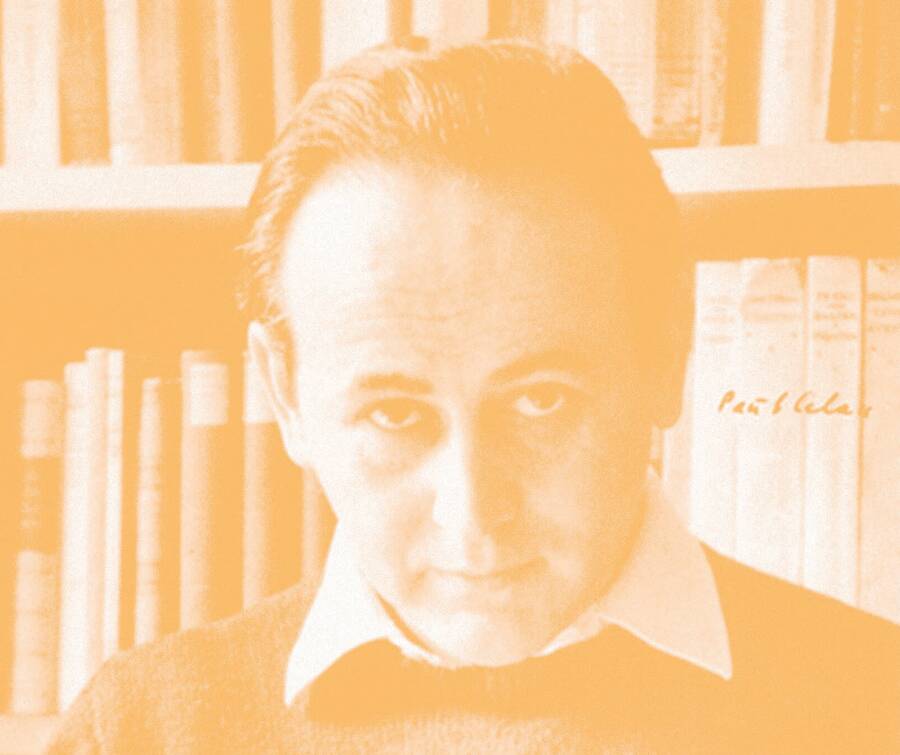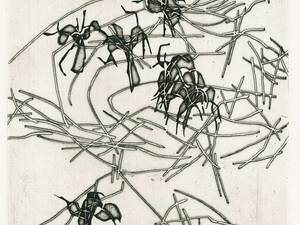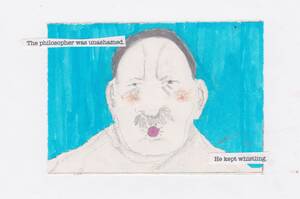Excerpts from Microliths They Are, Little Stones

Click here to read the rest of the Paul Celan folio.
Microliths they are, little stones, barely perceptible, tiny xenocrysts inside the thick tuff of your existence — and now you try, word-poor and perhaps already irrevocably condemned to silence, to read them together into crystals? You seem to wait for reinforcements — say, where should these come from?
—
Wine, spilled over the sabbath table. Because there no longer are any glasses, they, neighbors of the last thoughts, lie on the floor, smashed by policemen’s fists. The old one, call him father, at table’s end, forehead already in darkness, forever, only his beard visible, white, always whiter, flowing, the fodder /scatter/ on which we others, who still believe in the visible, chew,
—
Before you, open, the book. The gazes, divers, accompanied by thoughts, in the shallows, swimming about, wilting second coming. Lamplight, flaking off, the hand, fumbling in the ash.
The nameless hour. The table, ready to sally forth, the eye, idiotic, something once alive among the lifeless.
Remembrances, tiny stones behind the forehead, tomorrow’s fortuity gathers them into a mosaic. Beyond that, desperate, the scattered sand of oppressed being.
—
In the poem something happens, comes to pass: language as Being passes through the narrows of the one who writes the poem; it goes through and past.
—
The darkness of the poem = the darkness of death. The humans = the mortals. Therefore, the poem, remaining mindful of death, counts among the most human side of man. The human is however not; we have meanwhile experienced this copiously, the main characteristic of the humanists. The humanists are those who look beyond the concrete human being toward the noncommittal side of humanity. —
—
Who does not expect the poem, will not recognize it either —
Excerpts from Paul Celan, Microliths They Are, Little Stones: Posthumous Prose (Contra Mundum Press), introduced and translated from the German by Pierre Joris.
Paul Celan (1920–1970) was a German-language poet and translator. His books include Atemwende (Breathturn), Sprachgitter (Speechgrille), and Mon und Gedächtnis (Poppy and Memory).
Pierre Joris has moved between Europe, the US, and North Africa for some 55 years, publishing over 80 books of poetry, essays, translations, and anthologies, including the Paul Celan translations Memory Rose into Threshold Speech and Microliths They Are, Little Stones: Posthumous Prose.







